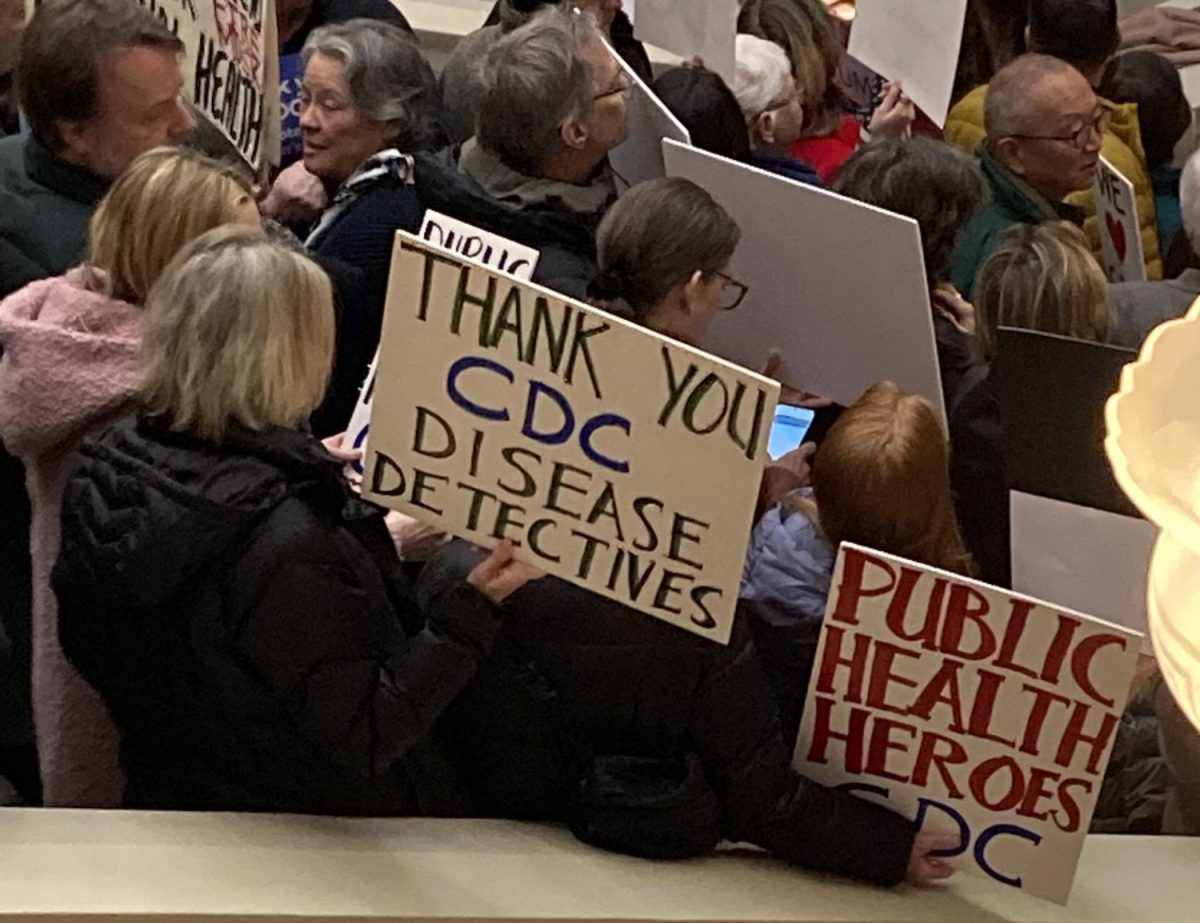The recent headlines concerning sexual harassment allegations against now US Supreme Court Justice Brett Kavanaugh have not only sparked political controversy amongst the American public but raised critical questions for both adults and high schoolers to consider.
Millions of Americans gathered on September 27 to watch the testimony against Kavanaugh on live television as Professor of Psychology Christine Blasey Ford recounted an alleged event from her past. She claimed she was assaulted as a fifteen year old by a drunk, seventeen year old Kavanaugh, who has now been inducted into the Supreme Court.
Because Kavanaugh was a teenager at the time, many are debating whether these alleged actions should have in fact had an impact on his Supreme Court induction process. This raises several questions: Should people be held accountable as adults several decades later for events they committed or took part in during high school? Where should the line be drawn between excusable and relevant actions?
In order to answer these questions, a survey including the above questions was distributed to a sample of the student body of Chamblee Charter High School. During the survey, participants recorded their grade level and thoughts on the issue and were also given the option to write down their name.
As a general consensus, 67% of the 127 surveyed students believed that high school actions should play a role in opportunities later in life. Broken down into grade levels, 76% of seniors and juniors, 72% of sophomores and only 60% of freshmen also answered this question in the affirmative. Out of the 46 students that provided their name, 76% of female students and 71% of male students also agreed that actions committed in high school should carry weight in the future.
Within this majority, junior Jay Epstein was very adamant that adults should be held accountable for their former actions.
“If someone knowingly committed an action that harmed someone else, then they must be held accountable, whether in real-time or in the future,” said Epstein. “The time that passes after an event does not shade the magnitude of the events.”
In contrast, another sentiment, which was especially popular among the freshman demographic, brought up a question concerning the maturity of high school students and how it plays a role in the actions one commits.
“I don’t think people should be held accountable because they have learned and matured from [that time period].” said freshman Nishat Nayla. “Thirty years is a long period of time, and it can teach you a lot.”
Several students chose an answer in the middle ground and decided to address how circumstance affects what should be taken into account for the future when judging a person’s actions. Sophomore Olivia Roberts reflected this sentiment in her response.
“I think that [maturity] should at least play a role in that we do make mistakes in high school,” said Roberts. “However, I think depending on what the action was, it probably speaks of that person’s character… The severity of the action definitely matters, as well as how the victim was affected. For example, with Kavanaugh’s case, I think he did a very bad thing and deserves proper repercussions, but I think if it wasn’t a job in court, rather something less significant, that should be taken into account.”
Meanwhile, sophomore Elizabeth Smith-Purcell mentioned which crimes should and should not be taken into account when deciding a person’s future.
“Things like smoking weed or underage [drinking] aren’t really that big of a deal,” said Smith-Purcell. “But things like sexual harassment are a big deal– that’s inexcusable at any age.”
When looking at what Chamblee’s upperclassmen had to say about the matter, the vast majority agreed that most, if not all, actions should be regarded as pertinent to a high schooler’s future.
“If we don’t punish [people who have committed crimes] when the event happens regarding sexual harassment because we are afraid of ruining their future, and we don’t punish them in the future because it happened in the past, then when do they answer for their crimes?” said senior Blair Varney. “When is justice served? When do the victims get closure?”
Contrary to this viewpoint, junior Jeremy Barnett took a more patriotic stance on the issue, deciding to instead address how judging others based on past crimes could infringe on one’s right to lead a fulfilling life.
“As a teen, your brain isn’t fully developed, so I don’t think people need to be held accountable for their wrongdoings [then],” said Barnett. “To live out the American Dream, you need to be able to have access to your future, and dumb decisions in high school shouldn’t have to hold you back from your full potential to do this in the world.”
As a whole, Chamblee’s student body regards crimes committed in high school as justifiable evidence towards a person’s character and future. As put by freshman Madeleine Quirk, “Regardless of age or amount of alcohol consumption, the fact that the accused is capable of these crimes should never be forgotten.”








